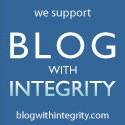
The Korea Herald:President Lee Myung-bak said yesterday he hopes to see expanded financial ties between Korea and Islamic countries, building on what they have achieved in trade and construction in recent decades.
"Korea and the Islamic world have been closely related in terms of history and culture since 1,000 years ago," Lee said in the opening address of a seminar on Islamic finance in Seoul.
"The dollars we earned during the Middle East boom became the backbone of the Korean economy, which is now the world's 13th largest," he said in the address, read by Financial Services Commission Chairman Jun Kwang-woo.
Lee is a former CEO of Hyundai Engineering and Construction, a major builder that was active in the Middle East countries during the '70s and '80s, emphasized that he has a special affection for the Islamic world.
"What we would like to see is significantly expanded capital flows and financial services between Korea and Islamic countries in addition to the trade of goods that have benefited each other so much over the past several decades," Lee said.
The two-day seminar at Lotte Hotel in central Seoul is the first of its kind organized by the Islamic Financial Service Board and Korea's Financial Services Commission and the Financial Supervisory Service. The FSC and FSS joined the IFSB as an observer last August.
The Kuala Lumpur-based IFSB promotes and enhances the soundness and stability of the Islamic financial services industry by issuing global prudential standards and guiding principles for the industry.
The 178 members of the IFSB comprise 42 regulatory and supervisory authorities, six international inter-governmental organizations and 130 market players and professional firms operating in 34 jurisdictions.
Up until now, Korean financial service firms have not been allowed to advance into the capital market in the Middle East because of the Islamic regulatory regime. Islamic law prohibits interest payments in financial transactions, so debtors pay quasi-interest in the form of dividends or commissions to lenders instead.
Middle Eastern countries also forbid usury and investment in businesses that sell alcohol or pork. The complex rules conflict with Korean financial and accounting standards, making it difficult for Korean banks to tap Islamic markets, but local players have been eager to advance into the Islamic capital market chasing the region's ample petrodollars.
Professor Rifaat Ahmed Abdel Karim, secretary general of the IFSB, said in his keynote speech that the pursuit of financial stability does not solely depend on the effective enforcement and implementation of standards.
"Financial stability requires the development of other key components of the Islamic financial infrastructure, which include a systemic liquidity infrastructure, a legal infrastructure, an information infrastructure and financial safety net mechanisms," he said.
FSS Governor Kim Jong-chang said that the seminar is a timely event that will help Koreans get new light on "opportunities for the Islamic financial services industry, its crucial linkage to global finance and its potential to contribute to the global economy."
The seminar consists of five separate sessions on issues such as "potential legal and organizational issues for non-Islamic countries attempting to implement Islamic financial systems," "challenges and opportunities for Korea."
Tuesday, January 13, 2009
Korea hopes to expand Islamic finance ties
Labels:Islamicfinance,Sharia compliants Islamic Finance in Korea
Subscribe to:
Post Comments (Atom)























No comments:
Post a Comment